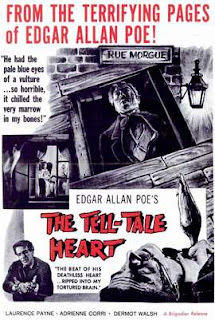The Lady Vanishes (1938)
directed by Alfred Hitchcock
In Bandrika, a fictional country in an "uncivilised" region of immediately pre-World War II Central Europe, a motley group of travellers eager to return to England is delayed by an avalanche that has blocked the railway tracks. At night, a folk singer plays a tune al fresco that catches the attention of Miss Froy (May Whitty), an elderly lady who has worked some years abroad as a governess. The folk singer is suddenly silenced--apparently murdered.
Among the train's passengers are Gilbert (Michael Redgrave), a young musicologist who has been studying the folk songs of the region, Iris (Margaret Lockwood), a young woman of independent means who has spent a holiday with some friends, but is now returning home to get married, and Miss Froy.
When the train resumes its journey, Iris and Miss Froy become acquainted, while the remaining passengers in the compartment appear not to understand a word of English. Iris lapses into unconsciousness, the result of an earlier encounter with a falling flowerpot meant for Miss Froy. When Iris reawakens, the governess has vanished, and she is shocked to learn that the other passengers claim Miss Froy never existed. The other English travelers deny ever seeing her, for their own reasons.
Fellow passenger Doctor Egon Hartz (Paul Lukas) convinces everyone that Iris must have hallucinated the scene with the old lady because of the blow to her head. Undaunted, Iris starts to investigate, joined only by a skeptical Gilbert, with whom she eventually falls in love. They discover that Miss Froy is being held prisoner in a sealed-off compartment supposedly occupied by a seriously ill patient being transported to an operation. They manage to free her, but the train is diverted to a side track, where a shootout ensues. Miss Froy intimates to Gilbert and Iris that she is in fact a British spy assigned to deliver some vital information (the famous Hitchcock MacGuffin) to the Foreign Office in London; after entrusting her message, encoded in a folk song—sung earlier by a balladeer, who is strangled in the first violence of the film[7] – to Gilbert, she flees under cover of the shootout.
cast
Iris Henderson LOCKWOOD, Margaret
Gilbert Redman REDGRAVE, Michael
Dr Egon Hartz LUKAS, Paul
Miss Froy WHITTY, Dame May
Boris, hotel manager BOREO, Emile
Baroness CLARE, Mary
Eric Todhunter PARKER, Cecil
Margaret, 'Mrs Todhunter' TRAVERS, Linden
Caldicott WAYNE, Naunton
Charters RADFORD, Basil
Blanche WITHERS, Googie
Julie STEWART, Sally
Signor Doppo LEAVER, Philip
Signora Doppo VAZ DIAS, Selma
the nun LACEY, Catherine
Madame Kummer WILSON, Josephine
the officer OLIVER, Charles
Anna, the hotel maid TREMAINE, Kathleen
man at Victoria railway station (uncredited) HITCHCOCK, Alfred
production
Directed by Alfred Hitchcock
Produced by Edward Black (uncredited)
Written by Sidney Gilliat, Frank Launder
Story by Ethel Lina White, Alma Reville
Music by Louis Levy, Charles Williams, Cecil Milner (all uncredited)
Cinematography Jack E. Cox
Editing by R. E. Dearing
Studio Gainsborough Pictures, Gaumont British
Distributed by United Artists
Release date 1 November 1938





